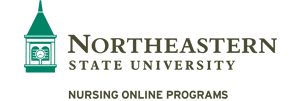This article was last updated on March 06, 2019.
Florence Nightingale is credited with introducing the holistic aspect to nursing. She believed that a patient’s environment had an effect on a patient’s health. Consequently, a nurse should recognize that a patient is more than just their illness. Many nursing schools incorporate the concept of holistic nursing into their Bachelor of Science in Nursing (BSN) curricula since it is becoming a widely accepted practice in modern medicine.
Why Is Holistic Nursing Care Important?
The American Nurses Association (ANA) established holistic nursing as a specialty in 2007. Holistic nursing is a comprehensive approach to patient care. According to the American Holistic Nurses Association (AHNA), holistic nursing is the practice of “healing the whole person.” This means that nurses should consider a patient’s body, mind, spirit, culture, socioeconomic background and environment when delivering care. The AHNA endorses the holistic approach for all nursing practices.
In holistic nursing, nurses foster relationships with their patients to promote healing and wellness. Holistic nursing is based on the principle that a patient’s biological, social, psychological and spiritual aspects are interconnected. These aspects fit together to form a unique person. Thus, holistic nursing focuses on individualized care by understanding each patient’s diverse needs.
What Are the Responsibilities of a Holistic Nurse?
Holistic nurses perform many of the same basic duties as other nurses, with the addition of fully focusing on making a patient feel relaxed, comfortable and part of the healing process. Nurses should learn a patient’s name, maintain eye contact, show compassion, and use imagery and relaxation techniques for pain control instead of administering medication when possible. The role of the holistic nurse is to do the following:
- Identify each patient as an individual
- Acknowledge the whole patient
- Interact with all patients and colleagues mindfully and respectfully
- Assess patients holistically through open communication
- Pinpoint potential contributing stress factors that impact a patient’s health
How Does a Holistic Nurse Treat Patients?
A holistic nurse is also known as a complementary health nurse. Holistic nurses use alternative medicine to treat patients. Sometimes they combine their holistic healing techniques with traditional medicine. Types of holistic treatments may include the following:
- Acupuncture
- Aromatherapy
- Eastern medicine
- Hydrotherapy and balneotherapy
- Hypnosis
- Massage
- Wellness coaching
What Is the Difference Between Holistic Nursing and Traditional Medicine?
Holistic nursing and traditional Western medicine implement different philosophies, diagnostic procedures and treatment options. While the perspective of holistic nursing is to attribute a patient’s sickness or injury to their experiences and environment, traditional medicine centers on genetics, bacteria and viruses.
Holistic Nursing
Holistic nurses listen to patient preferences and suggestions about how to proceed with treatment options. If a patient is diagnosed with a specific disease, nurses might prefer to focus on healing rather than the condition itself. Treatment recommendations can include the following:
- Biofeedback
- Dietary changes
- Exercise
- Guided imagery
- Herbs
- Homeopathy
- Meditation
- Reflexology
Traditional Western Medicine
Western medicine seeks to match up symptoms to an established paradigm of diseases and health conditions to determine a diagnosis. Providers use diagnostic tools to find the cause of the disease and to determine a prognosis. These illnesses and diseases are often treated with medical equipment and drug therapies.
How Does Holistic Nursing Improve Patient Care?
Holistic nursing can improve patient care because the practice delves into how a patient may reduce their chances of being stricken with a disease or injury, and it increases the likelihood of a positive outcome. The individualized care allows the patient to heal by changing their lifestyle choices and applying their beliefs to their treatment. Nurses are fully aware of a patient’s struggles and strengths, which can be used to help the patient cope, adapt and recover.
The combination of holistic nursing and contemporary Western medicine expands a nurse’s ability to offer the best treatment options for each patient. To successfully treat patients, nurses must have the necessary knowledge about diseases and an understanding of the physical and emotional influences that illness can have on a person. Holistic nursing steps away from a detached protocol in medicine and instead encourages personalized care. As holistic nursing becomes more common in healthcare settings, nurses have the opportunity to combine alternative methods with traditional approaches to enhance patient care.
Learn more about Northeastern State University’s online RN to BSN program.
Sources:
Discover Nursing: Holistic Nurse
RegisteredNursing.org: What Is Holistic Nursing?
Nursing Theory: Holistic Nursing
American Nurse Today: Holistic Nursing: Focusing on the Whole Person
Nurse Journal: Holistic Nursing Careers & Salary Outlook
LiveStrong.com: Holistic Medicine Vs. Western Medicine
Greatist: 11 Alternative Medicines Explained
MedCity News: The Great Debate Between Western and Alternative Medicine
American Holistic Nurses Association: What Is AHNA?
Indian Journal of Palliative Care: Effective Factors in Providing Holistic Care: A Qualitative Study


